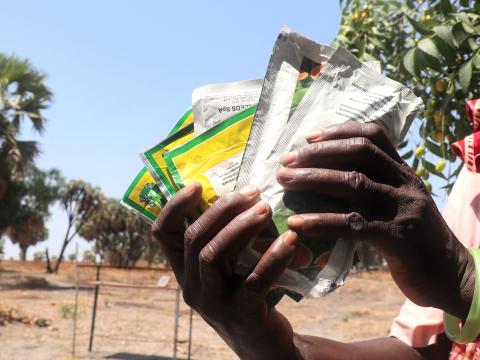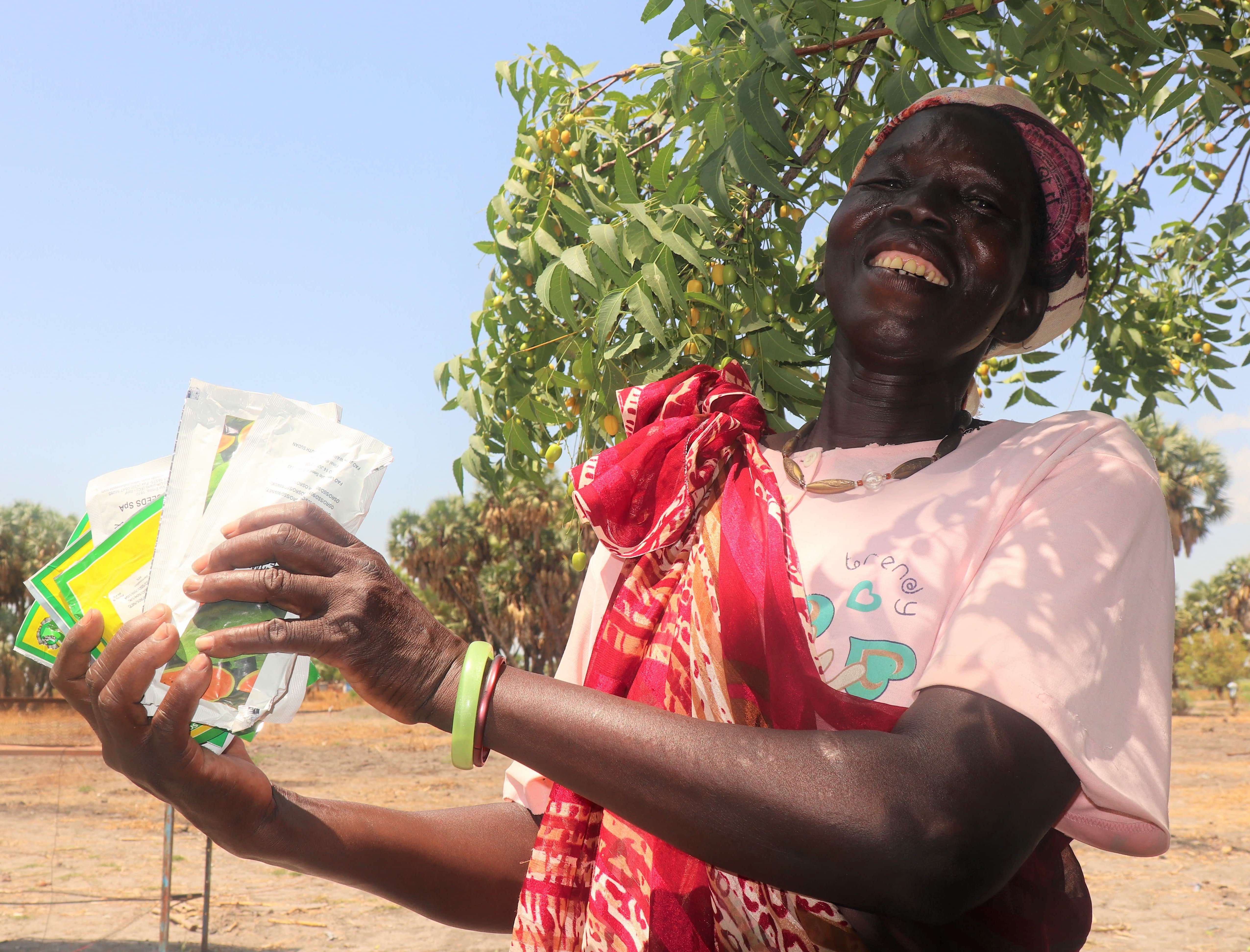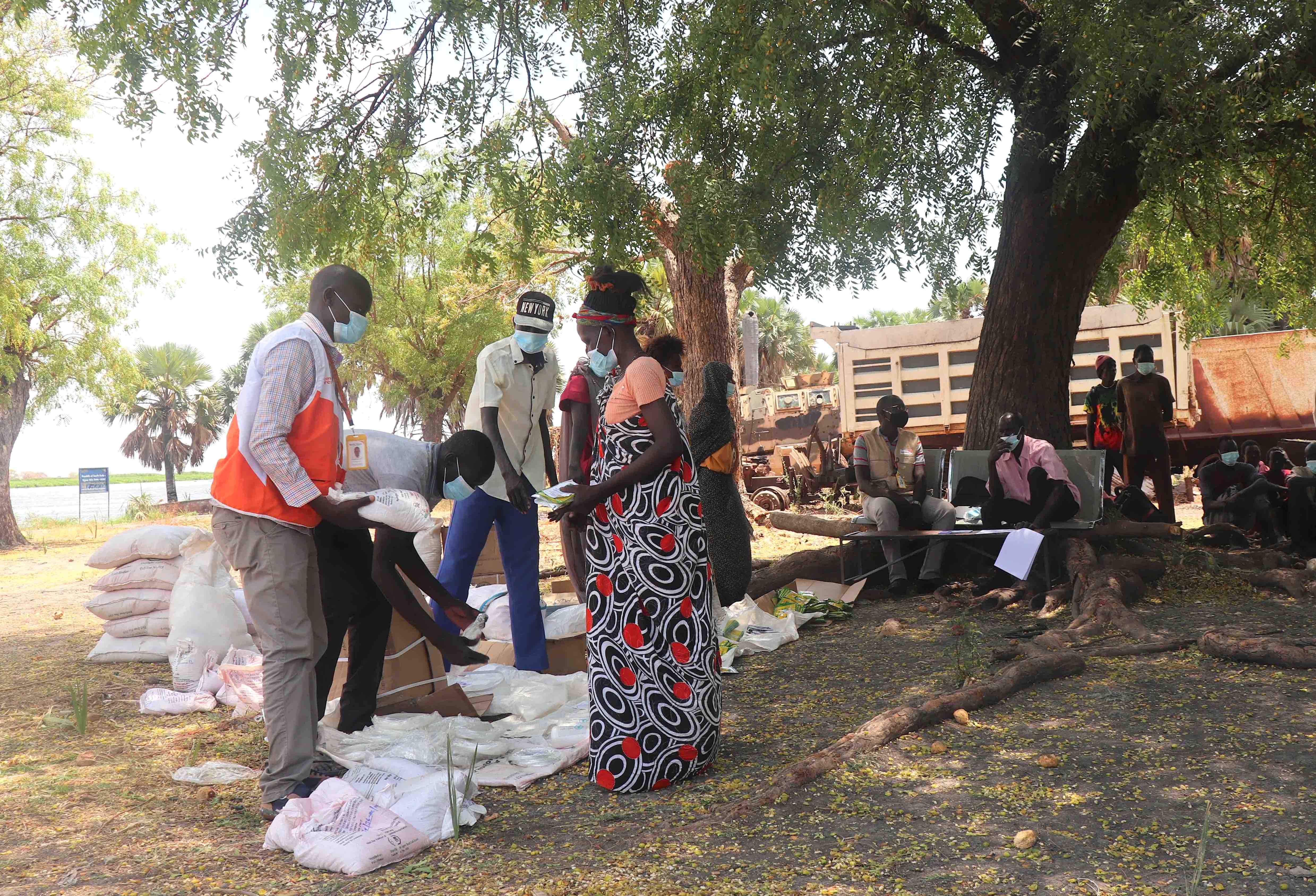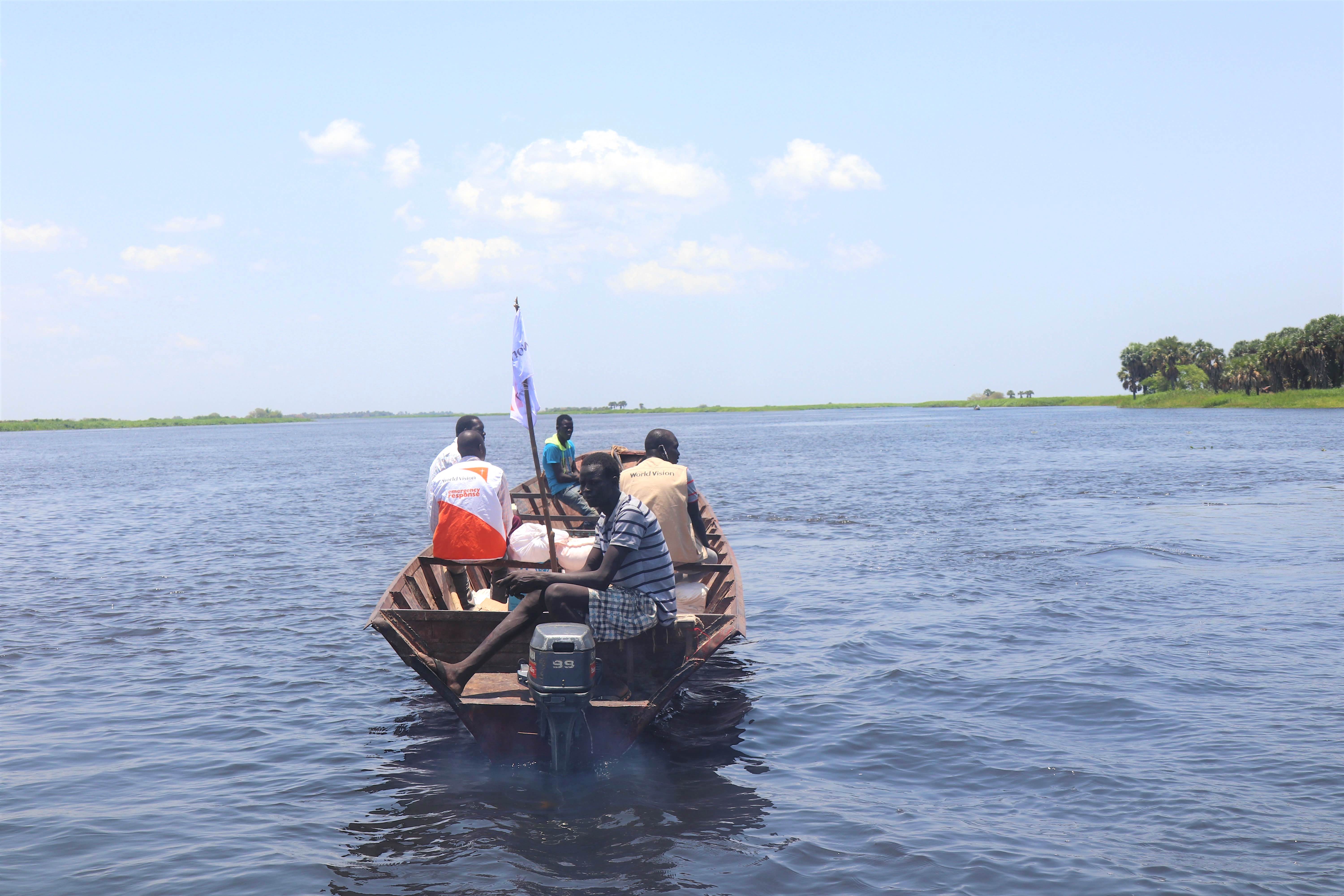Seeds and other farm inputs can save thousands from hunger in South Sudan

“I will risk my life a million times than watch my children die of hunger”, shares Akuol Bol, a 45-year-old mother of seven.
Akuol is among the thousands of women who lost their husbands during the 2013 and 2016 conflicts in South Sudan. She and her family took refuge in the Malakal Protection of Civilians (POC) site in 2013 after receiving the news of her husband's death.
“I felt numb when the news came in, but I had to be strong for my children. Nowhere to go, I followed the people who fled to the POC”, Akuol recalls.

She lived in the site with her seven children until 2017 when the food ration was reduced to 70 percent. She says, “For a widow like me, food is all I ask for my children. But in 2017, the reduced food can only last for 10 days.”
Leaving her children in the POC for safety, Akuol made a tough decision to go out and find food to supplement her family’s needs to survive.
“I moved back to my community even as most people were still afraid. I did not have seeds then to start in my own farm so I worked in the farms of people who did not go back. We agreed to share the harvest,” Akuol shares.

Akuol is among 1,400 people in the west bank of Malakal County who was registered for World Vision’s dry season input distribution comprised of agricultural seeds and fishing kits funded by the Food and Agriculture Organization (FAO).
We should continue to strengthen local seed production that can adapt easily to the local agro-ecological zones and boost the farmers’ access to crop seeds locally. This will restore food security among households in South Sudan.
According to her, many people in Malakal are engaged in agro-pastoral farming. They grow vegetable crops along the riverbanks during the dry season, carry-out subsistence cereal crop production in the main season from May-October, as well as livestock rearing on the side.
The frequent floods, prevalence of crop pests such as fall armyworm, lack of access to certified seeds, poor road network and funding for other farm inputs make situation worse for small-scale farmers every planting season.

“For two years, I have worked in people’s farms. Not anymore. With these seeds provided to us by World Vision, I can plant a variety of vegetables and fruits in my farm. I will spend less time in the bush and more time with my children”, she states.
The project supports the needs of families affected by hunger and malnutrition through the provision of tomato, onion, eggplant, amaranthus, collard, jute mallow, pumpkin, and watermelon seeds.
Christina Chan, 28 a mother of four says, “Indeed the Lord doesn’t forget His people. When all hope is almost lost, He brings in a new thing. As mothers, our children’s hunger constantly brings pain in our hearts, but support like this gives us hope.”

Manase Gwolo, Food Security and Livelihood Coordinator says, “Supporting the mothers, especially widows, with seeds is so important. Vegetable provides diverse food options and nutrients that reduce malnutrition rates among children and elderly persons. Good agriculture production also expands the farmers’ livelihood and income.”
“We should continue to strengthen local seed production that can adapt easily to the local agro-ecological zones and boost the farmers’ access to crop seeds locally. This will restore food security among households in South Sudan.", Manase concludes.

Story and photos by Scovia Faida Charles Duku, Communications Coordinator